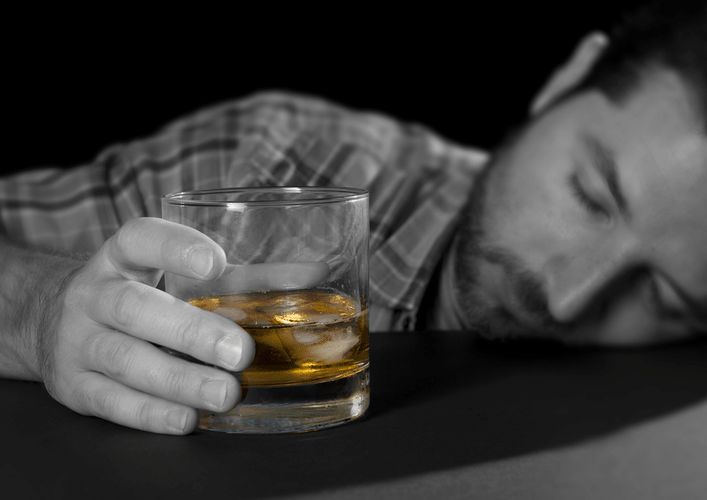If you are having suicidal thoughts, contact the National Suicide Prevention Lifeline at 988 for support and assistance from a trained counselor. Naltrexone, Acamprosate, and disulfiram are also FDA-approved https://cenzure.net/pagescat/8/216/25/ medications that can help curb alcohol cravings. You may also consider joining a community-based group such as Alcoholics Anonymous or Self-Management and Recovery Training (SMART) Recovery.
- As a result, you may be overly aggressive during a situation where you’d otherwise notice the cues that tell you to think more rationally.
- Vaillant (1995) has conducted a 40-year followup of 2 samples, one including more than 200 college men and the other including more than 450 blue-collar boys who were ages 11 to 16 at the time of the original study.
- Becoming angry when intoxicated can lead to domestic violence incidents.
Alcohol and Stress—Shift From Positive to Negative Effects

It is important to note that medications for alcohol use disorder are a first-line treatment. They can be helpful for many, so talk to your doctor about this option. If you’re dealing with severe https://www.balakovo.ru/board.php?site_id=3&set=2&group=14 alcohol withdrawal symptoms, such as anxiety, insomnia, nausea, and hallucinations, among others, then your doctor may suggest medications such as chlordiazepoxide or other benzodiazepines.
Various factors affect the potential for anger arousal with alcohol consumption.
Likewise, if you’re diagnosed with one of these conditions, your doctor may ask about symptoms of the other. This is a common part of diagnosis because both so frequently occur together. Some people also worry that they’ll feel uncomfortable around new people without a drink or two to help them relax.

What is Alcohol Use Disorder?
And research continues to produce better medications and therapies to help you detox more comfortably and effectively treat depression symptoms. In addition, attempting to stop drinking and going through withdrawal can worsen depression, making http://aloepole.ru/articles/1077005424/a-1093329839 it even harder to quit. Several medications and behavioral treatments can help with both depression and AUD. Sometimes you need to express your deepest, ugliest feelings with someone who can listen, and not try to fix you or judge you.
Anger and substance abuse: a systematic review and meta-analysis

High levels of depression are especially worthy of concern, because the risk of death by suicide among alcoholics, estimated to be 10 percent or higher, may be most acute during these depressed states. Clients can learn healthy stress management and coping skills to diffuse anger and other negative thoughts in group and individual therapy sessions. Emotional regulation skills and relapse prevention tools are also taught. Through behavioral therapy and counseling, a person is better able to recognize how their thoughts tie into their actions. They can learn to recognize potential triggers and how to safely manage them. Some people are more prone to trouble controlling their anger while drinking than others.
Could Drinking Be Fueling Your Depression?
Alcohol abuse and dependence are both considered an alcohol use disorder, with studies finding that alcohol dependence is more closely tied to the persistence of depressive disorders. Many studies have found that alcohol dependence is closely linked to depression. When it comes to diagnosing an alcohol use disorder and a major depressive disorder, it’s important to address them simultaneously, as they can significantly impact your recovery. If you’re battling depression, alcohol isn’t going to make you feel better. It may temporarily suppress feelings of isolation, anxiety, or sadness, but that won’t last. Recognizing the symptoms of depression and alcohol use disorder can help ensure that you get the right diagnosis and treatment.
- The government advises that both men and women should not regularly drink more than 14 units a week.
- Finally, Schuckit’s research group followed 239 alcoholic men 1 year after they received alcoholism treatment, and the data revealed no significantly increased rates of major depressive or anxiety disorders (Schuckit and Hesselbrock 1994).
- It helps people understand events and thought processes that lead to depression and substance misuse.
- These feelings can fuel shame, harsh self-criticism, and self-punishment — all of which often happen with depression.
- It becomes unhealthy when it is repressed, uncontrollable, or explosive, and interferes with daily life and relationships.
And all too often, as in Ryan’s case, it reflects displacement, directing anger toward a target that is not the source of an individual’s original anger. Under the influence of alcohol, those already predisposed toward anger may vent or, more seriously, direct their anger toward a target that might be experienced as less threatening than the original target. Many people enjoy alcoholic drinks as a way of relaxing, sometimes to reduce the tension of socializing or to quiet an overactive mind. By contrast, some individuals’ alcohol consumption contributes to their anger, hostility, and even aggression. In his case, he was already predisposed to anger arousal before he had his first drink.

